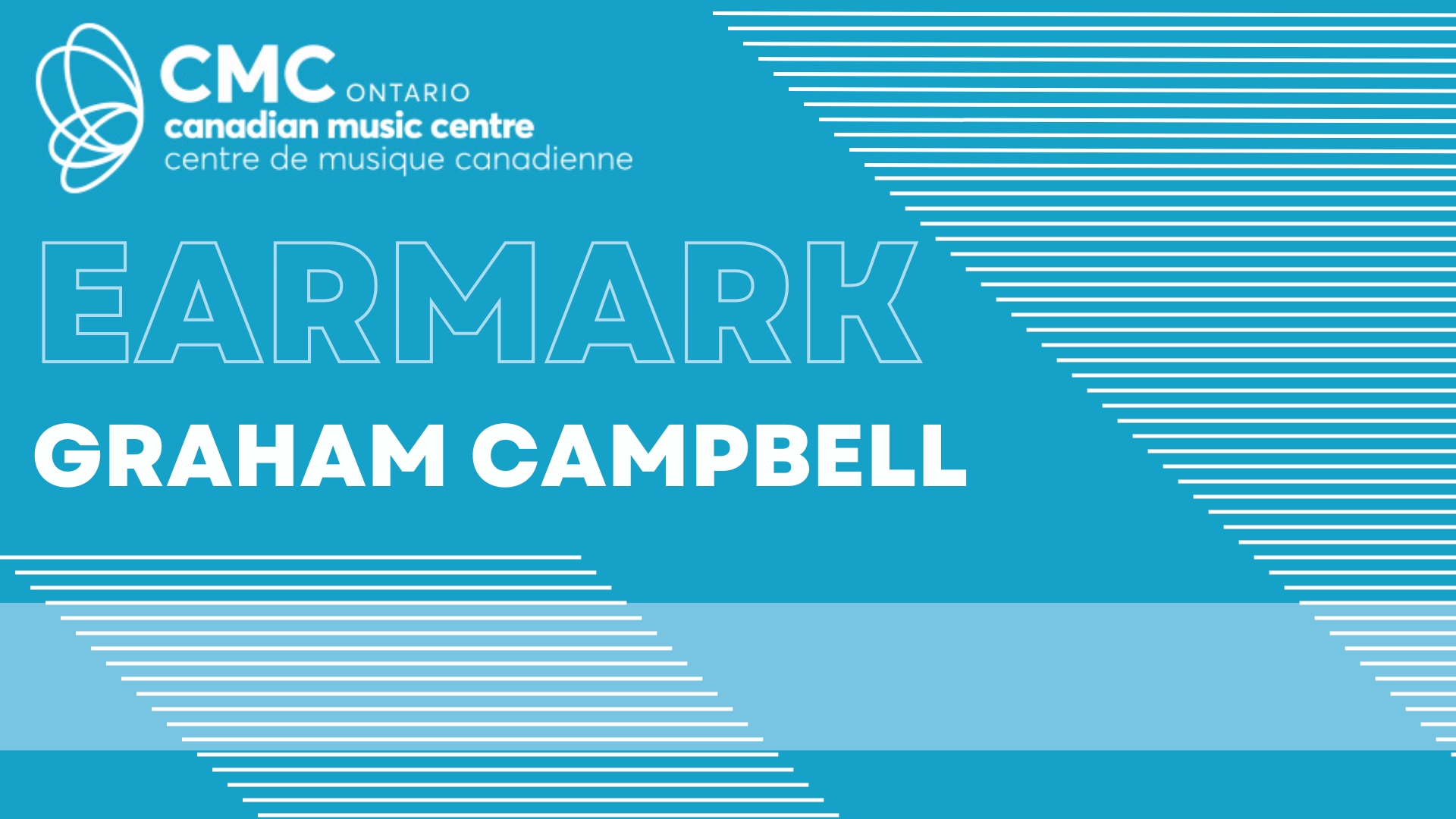In this instalment of Earmark, we catch up with Associate Composer Graham Campbell about making the leap from jazz to classical music to film scoring and the connections between all three.
What are your plans as we ease out of the pandemic? How has your form of artistic practice changed?
During the pandemic I made the shift to composing for film. It was something I had wanted to do for years, but I never had the time to learn the necessary technical skills. During lockdown I got my home studio up and running, and started collaborating remotely with filmmakers. My plans are to continue down this path, because I absolutely love it.
What got you excited about music at a young age?
It’s hard to answer, because I don’t remember ever not being excited about music. But I think a big moment for me was in 5th grade, me and a friend started writing songs for our school projects. The first one we wrote was about Martin Luther King Jr. It was a big hit in our class, and was the first time I experienced people being moved by something I had created.
What is an important music concert/event you attended?
There are way too many, but the first ones that comes to mind: seeing Icelandic band Sigur Ros at a beautiful old theatre in Louisville, Kentucky, when I was 17. Seeing jazz manouche guitarist Adrien Moignard in Paris. A Soundstreams musical/theatrical presentation of the music of Claude Vivier. Messaien’s Quartet for the End of Time performed in Stratford last summer by James Campbell, Mark Fewer, Thomas Weibe, and Angela Park.
What have you been listening to lately? Feel free to provide a link to streaming audio/video. Does any of this make its way into your music?
I’ve been listening to lots of Canadian composers, such as Jocelyn Morlock, Kevin Lau, and Dinuk Wijeratne to name a few. Also lots of film scores. Roger Goula’s score for All That Breathes is only 11 minutes in total, but it’s incredible. I also enjoy any score by Cristobal Tapia De Veer. Some other specific albums that have been in regular rotation for a while include Masada Guitars (Bill Frisell, Marc Ribot, and Tim Sparks playing the music of John Zorn), and a band called Ambroise from Montreal (I think):
What is a significant insight that a mentor shared with you that has guided your practice?
My friend/mentor Robbie Teehan suggested that when writing concert music, I should pretend I’m scoring an imaginary film, and use it to guide the narrative of the music. Robbie helped me get started with film scoring, but he’s also an accomplished classical composer, so his insights into finding the common ground between the two worlds were very helpful. Some other mentors of mine include Andrew Downing and David Braid. I’ve somewhat followed in their footsteps as someone who began as a jazz musician before writing classical music, so having them as role models really helped me find my path.
What is the most important lesson you would share with your younger self in regards to your music?
I think I waited a long time to teach myself how to record and produce music on my own. It felt like such a daunting set of skills to learn that I would make excuses like “you don’t have time to do that, you’ll never be any good at it” etc. I would like to tell my younger self to cut the BS!
Tell me about a project/work of yours that you are particularly proud of.
Last year I released an album of original chamber works, entitled Palms Upward. I played a little guitar and piano on the album, but mostly I just wrote the music and produced the record, which felt great. Here’s a live performance of one of the pieces from the album:

